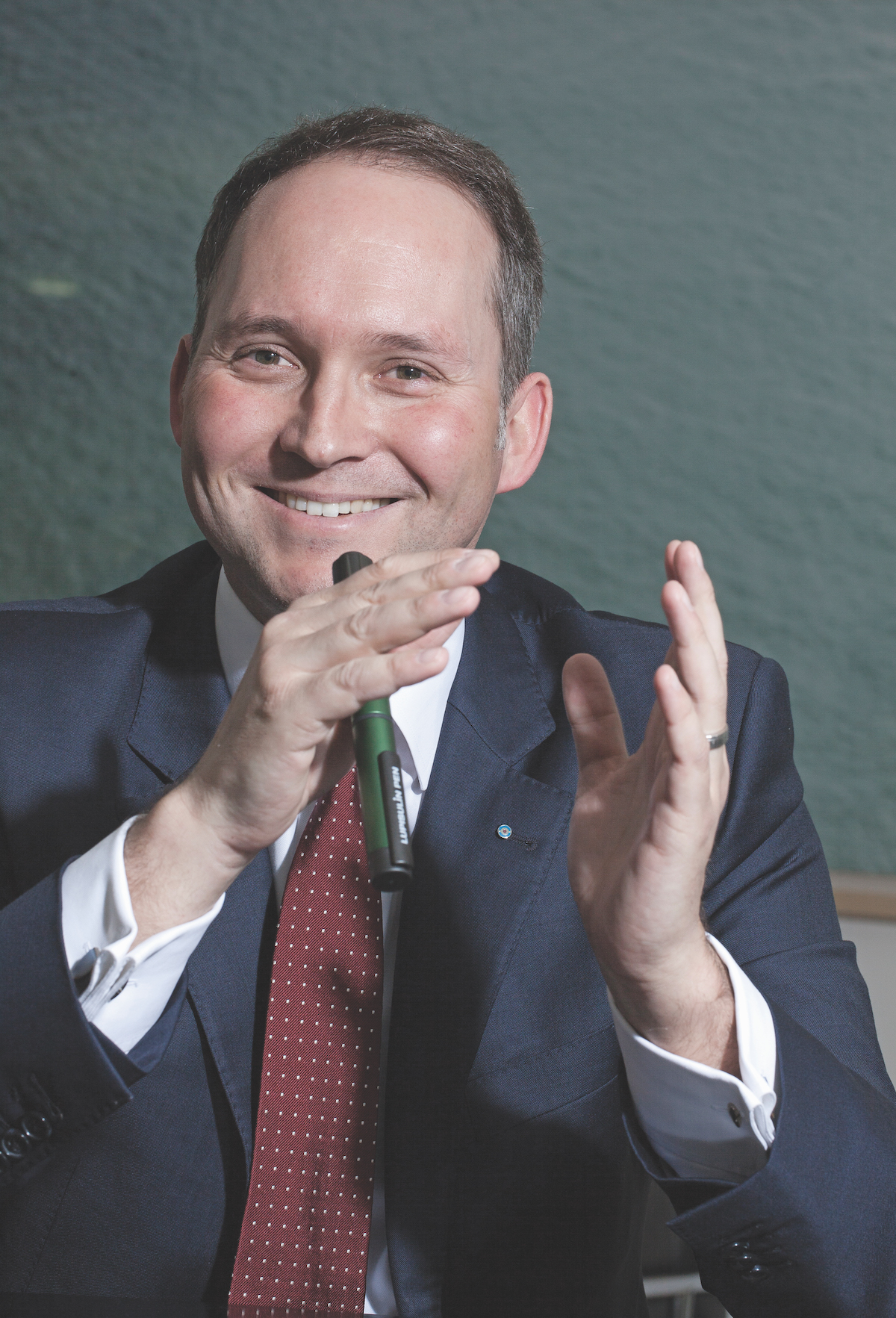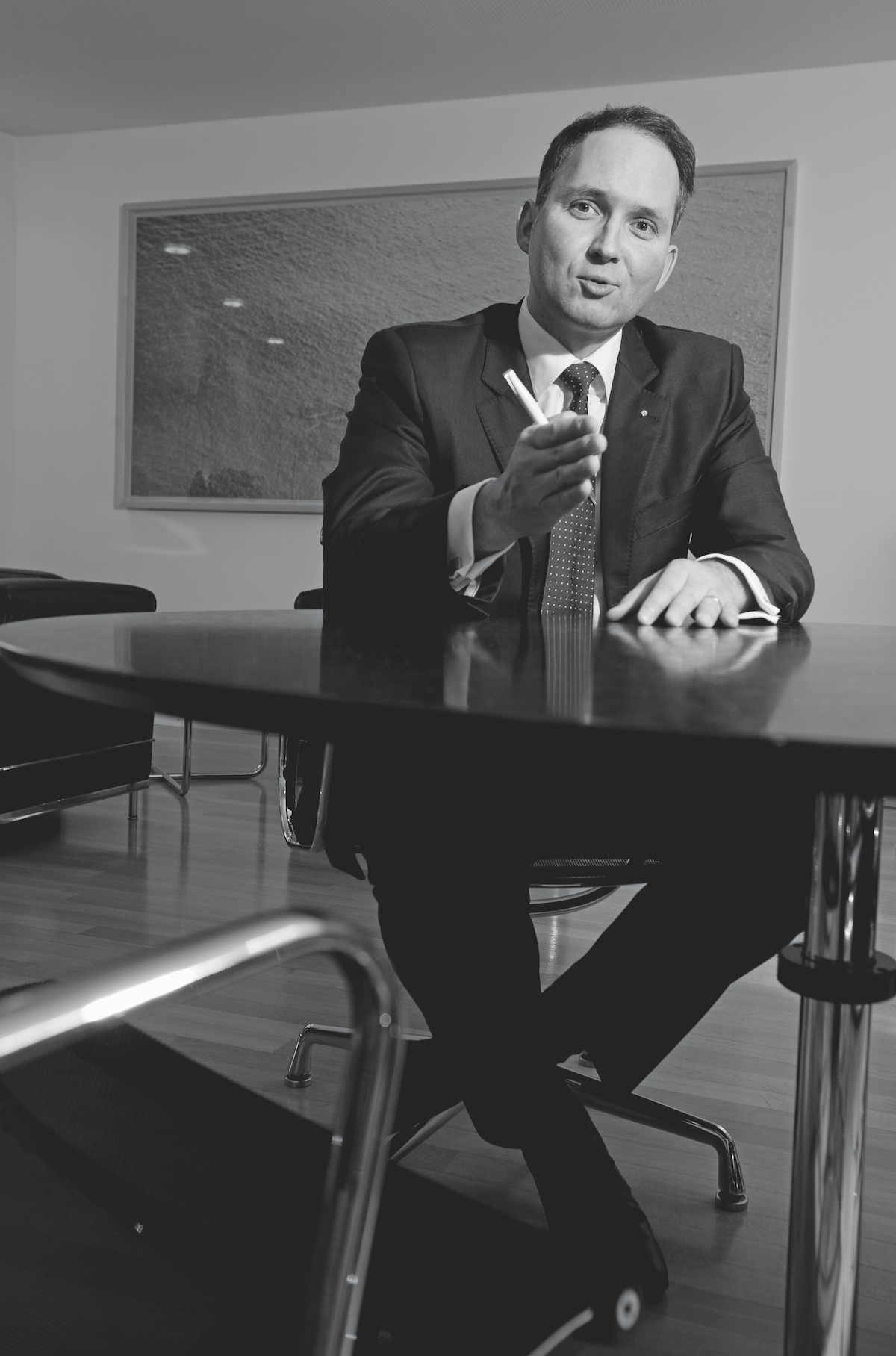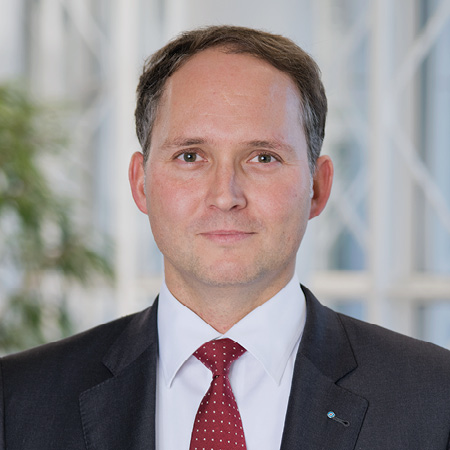Most company websites don’t make particularly engaging viewing for the average visitor. They are all about profits and new acquisitions, awards and new appointments. While Ypsomed has all these announcements too, it also has something else: compelling stories about real people whose lives are transformed by the company’s diabetes self-care management tools.
There’s Adrian, 13, for instance. His type 1 diagnosis meant he could no longer run around as he used to without someone monitoring his blood glucose. As for sleepovers, they were out of the question. The freedom that an Ypsomed OmniPod — a tubeless device that adheres to the skin and delivers insulin — gave him was priceless. “At last I can do everything my mates do,” he grins. Then there’s Stefanie, 31. Sport and her husband are the 2 most important things in her life, and her OmniPod allows her to swim or step into a shower without thinking about it. “Suddenly I’m not tied to anything,” she says.
And then there’s Julie. At 19, she doesn’t mind talking about her diabetes, but she doesn’t want it permanently on show. Now she no longer has to disrupt meals by injecting herself and can wear pretty dresses without worrying about a tubed insulin pump falling out of its pouch. There are endless stories like these: people with diabetes who can now take care of themselves without pain or hassle. They, better than anyone, tell the story of Ypsomed — an organisation that is all about people and partnerships. Speaking to the company’s CEO, Simon Michel, it’s obvious that’s a philosophy that comes from the top. While parallels are often drawn between Simon’s leadership style and his time spent serving in the army, in many ways it’s more patriarchal than that. He’s like the head of a family: nurturing relationships, building trust, and striving for the best outcomes for everyone, from suppliers to customers.

Perhaps one reason for this is that Ypsomed is a family business. Simon’s father, Willy, founded the company more than 30 years ago, and although around 30% has been floated on the Swiss stock exchange, the remainder is in family ownership. Business was the subject of discussion most evenings, and after his spell in the army and the telecommunications industry (Simon has a degree in economics with a major in Media and Communication Management), it was small surprise to find him on the Board and then, in 2006, in the workforce.
At that time, Willy had stepped down as CEO, so the company had an external head and Simon began as an international affairs manager, introducing and setting up the Asian arm of the business. “Since then, I’ve built up the direct consumer business, established the mylife diabetes care brand — which is today rolled out in more than 40 countries — and continued step-by-step through the organisation. Two years ago I became CEO. Having had that 8 years of operational experience in all areas of the company was excellent,” he says. And, he adds, the lessons he learned in the army and telecommunications were not years wasted. “The telecommunications has especially been very helpful because medical devices have had to become easier to use and more intuitive in order to ensure high compliance of the therapy. Meanwhile, from the army, I learned we have to give people responsibility. To do that, you must trust them and establish a corporate culture of openness where they are allowed to make mistakes. We all learn from such experiences and become better as a result. This is something very special. But I think it’s very important to delegate as much responsibility as possible, whether to someone on the production line or an expert in their field.”
Perhaps, too, from the army comes Simon’s focus on good decision-making. Both in the army and in his current role, lives may depend on it. “There is a German phrase which translates in English as ‘fact-based decisions’,” he says. “So decisiveness is a key element in my leadership style. You have to make decisions, to make fast decisions, and to ensure those are fact-based decisions.”
Type 1 diabetics have achieved a range of extraordinary accomplishments, from becoming elite athletes to prime minister of Great Britain. However, it isn’t a condition from which anyone recovers. The cost of management is ongoing, which is why another of Simon’s proudest boasts is that Ypsomed isn’t just the technology leader in the field of diabetes management; it’s the cost leader also. “In the pen systems, for instance, I would say we close 8 out of 10 deals worldwide. Because of the large number of products we have in our organisation, we can afford larger and more automated lines, and that means we are cheaper and more cost-efficient. We have by far the broadest range of products and are really able to ensure a safe implementation of these platforms in our factories.”
That growth shows no sign of slowing either, with the company recently acquiring more than 20 acres of land to build a new factory in East Germany, about an hour from Hamburg. “We’ve found optimal conditions and specialists there in order to ensure our growth for the next decade,” Simon says. “The decision to develop outside the company’s headquarters in Switzerland with a new site is mainly due to the lack of land here, the unfavourable terms in our country with the strong Swiss franc, and also our high salaries and shortage of human capital.”

“We even award failed development, as we all learn from such experiences and become better as a result.”– Simon Michel
It is important to note here that while cost-efficiency is important to Ypsomed, useability is never compromised and products are often developed in consultation with the consumer. For instance, diabetes patients were asked what they considered to be the ideal blood glucose monitor, and the resulting mylife Unio was developed based on their requests and suggestions. Painless, discreet and efficient, it went on to win a much-deserved design award.
Ypsomed’s devices all score highly on useability. Being intuitive, they don’t require a sheaf of instructions. However, adherence is key, and many diabetics go through a period of rebellion, forgetfulness or weary laziness. The consequences of that can be fatal. To make it easier to ensure they stay on track with timing and dosage, Ypsomed’s mylife Software is a user-friendly management solution. It’s accessible via the mylife cloud or on a personal computer and means that people with diabetes and their healthcare managers, whether doctors or parents, can monitor their care and make sure it’s working.
“Pens, injectors and pumps are all getting connected, so we can gather the data from the insulin pump and the blood glucose monitoring system in the mylife cloud,” observes Simon. “This is key now, to enhance the therapy in chronic disease, but particularly those diseases which you treat yourself at home. Diabetes is, of course, the number one illness in the world, so such enhancements are particularly important.”
Ypsomed even makes it commendably easy for customers to adhere to its recycling policy. With the OmniPod, for example, users can wear the pod fora maximum of only 3 days, after which it has to be replaced, so the company offers a recycling program, even supplying customers with a postage-paid recycling box in which to return their pods free of charge.
“Reliable, long-term and stable partnerships are crucial.” – Simon Michel
It is no surprise to discover this synergy extends to the partners Simon chooses to work with. “Medical devices cannot easily be changed because the product is defined in all its details. It’s registered with a noted body like the FDA or EMA, and that prevents change. In our industry, it’s impossible to launch products and then enhance them while they are on the market, like the software industry. We can only launch finished, user-tested products. Therefore, reliable, long-term and stable partnerships are crucial for smooth operation and production because we simply cannot change the components. That means the selection of a partner or supplier requires in-depth analysis, and we have to ensure they will still be around in 10 years time. That really is essential.
“Take Maxon Motors, for example, who make the motor drive for our pumps. It is a very important partner. We really are more than married! I mean, imagine if Maxon went bankrupt. We would have to exchange the motor drive and create a new product; it would be a multimillion-franc project. So this has to be a very close interaction, and we’re very pleased with the work and support we get from Maxon; they have detailed technical knowledge. And it’s not just a supplier relationship; we worked together in the early development stage of the project, which can take up to 5 years. Their experts helped us a great deal to build a better insulin pump, so it’s been a long relationship.
“Sortimat is also an important partner because they are our main supplier of high-automated assembly lines. These assembly lines have to last for 10 or more years, and once again you need a very strong connection because once you install such a large assembly line, you are stuck with it. That means it’s essential to work together in the early design of that line, whether for pens, needles or infusion sets, to make sure it really works.
“Meanwhile, Sauter has been a great partner in the development of our YpsoMate auto-injector platforms. They specialise in springs, core components of some of our injection systems platforms. Those platforms live for 10 or more years also, so again a stable, long-term marriage is essential.”
When divorce is off the table, choosing the right relationships is a massive responsibility, but it’s clear that responsibility is what Simon relishes above every other aspect of his role.
“It’s a huge privilege to be able to decide, with a team of course, the direction in which we’re heading,” he says. “Owning a major part of the company gives me ultimate freedom, but also ultimate responsibility. My whole life I’ve embraced that — whether in school, sports or within my own family.”
That responsibility includes having the self-awareness to know he is the right fit for his role. “It may be that in the future we’ll have another CEO, but at the moment I have a strong market, customer and fact-based orientation, and I’ll continue serving as CEO as long as I remain the best for this job.”

